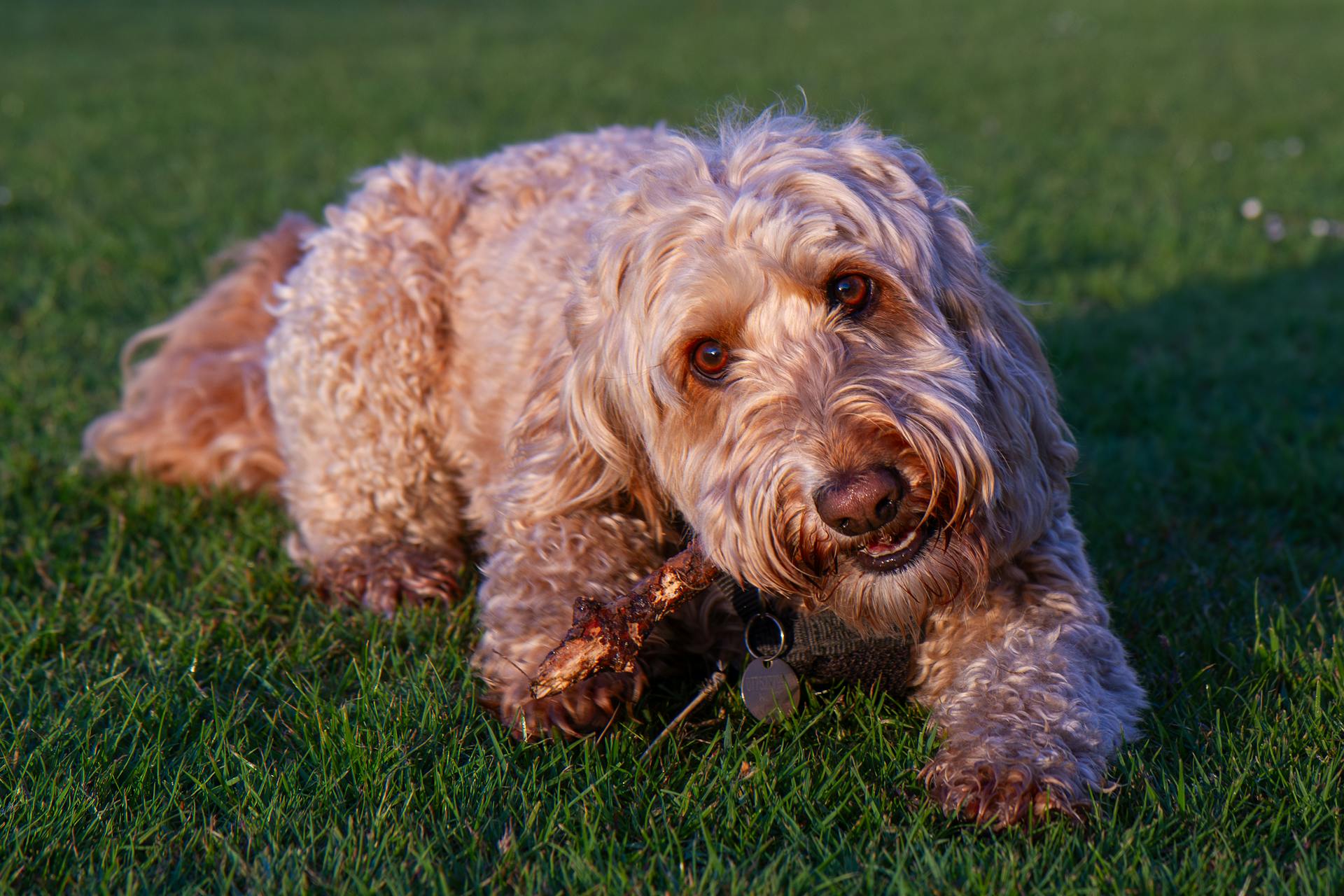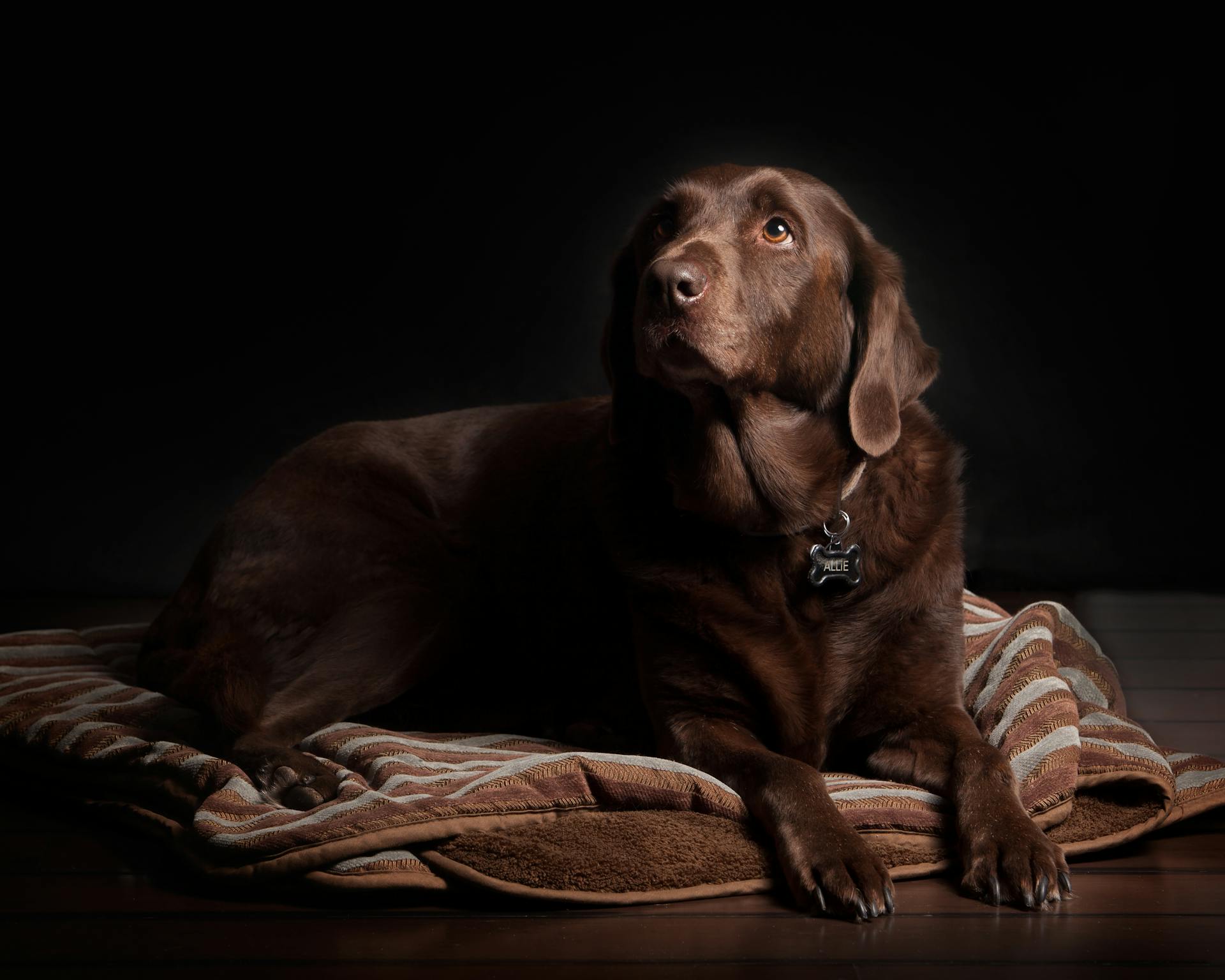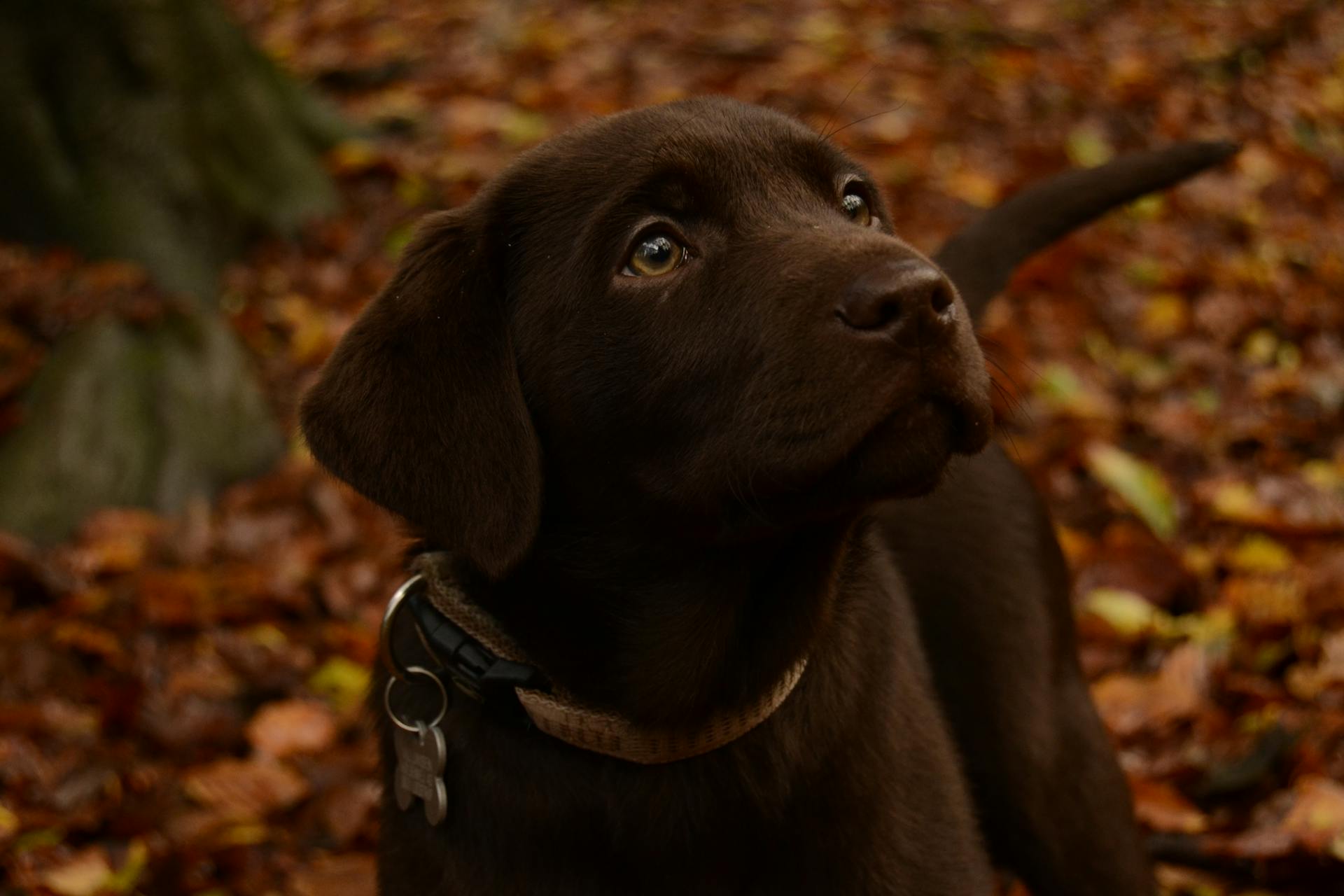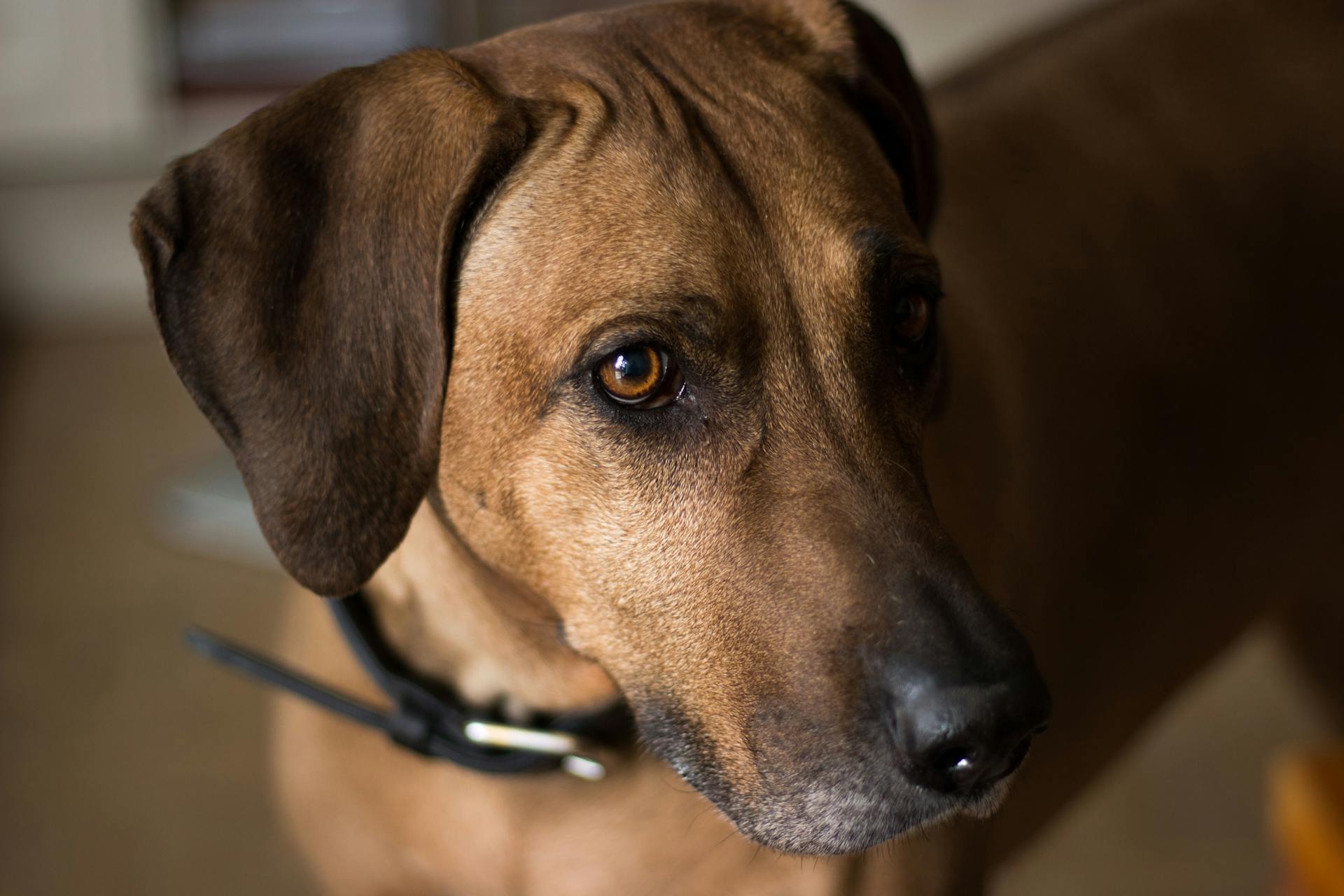
The Brown Thai Ridgeback is a rare and ancient breed, originating from Thailand over 4,000 years ago.
They have a distinctive appearance, with a brown coat and a unique ridge of hair running along their back in the opposite direction of their fur.
Their short, smooth coat requires minimal grooming.
The Brown Thai Ridgeback is a loyal and affectionate companion, making them a great addition to families with children.
They are highly intelligent and trainable, but can be independent at times.
Their energetic and playful nature requires regular exercise and mental stimulation.
Characteristics
The Thai Ridgeback is a medium-sized dog, with females reaching a shoulder height of up to 56 cm and males growing to over 60 cm.
Their weight ranges from approximately 23 to 34 kg, making them a robust and hardy breed.
Their muscles are clearly visible through their soft skin and velvety, short coat.
The Thai Ridgeback's forehead is usually wrinkled and their medium-sized, triangular ears are often attentively pointed forward.
Their tail is slightly curved and upright, giving them a distinctive appearance.
The breed's most distinctive feature is the "ridge" on its back, which is a ridge of hair that grows in the opposite direction to the rest of the coat.
Curious to learn more? Check out: Medium Sheepadoodle
Health and Care
The Thai Ridgeback is a sensitive and emotionally intelligent dog, so it's essential to approach training with patience and kindness. This means avoiding punishment and instead using positive conditioning to achieve quick and long-term learning progress.
You'll also want to establish yourself as a leader, as the Thai Ridgeback can be physically stronger than you. This will help your dog learn the language of other dogs and avoid misunderstandings.
To keep your Thai Ridgeback healthy, regular grooming is a must. This includes wiping the eyes and ears with a clean, damp cloth to prevent infection.
Health Issues
The Thai Ridgeback is generally not particularly susceptible to disease, but it's essential to choose a reputable breeder who prioritizes the health and well-being of their dogs.
Regular grooming is crucial to prevent infections, so wipe the eyes and ears with a clean, damp cloth, and keep the folds clean. If you notice any redness or unpleasant odors, consult a vet immediately.
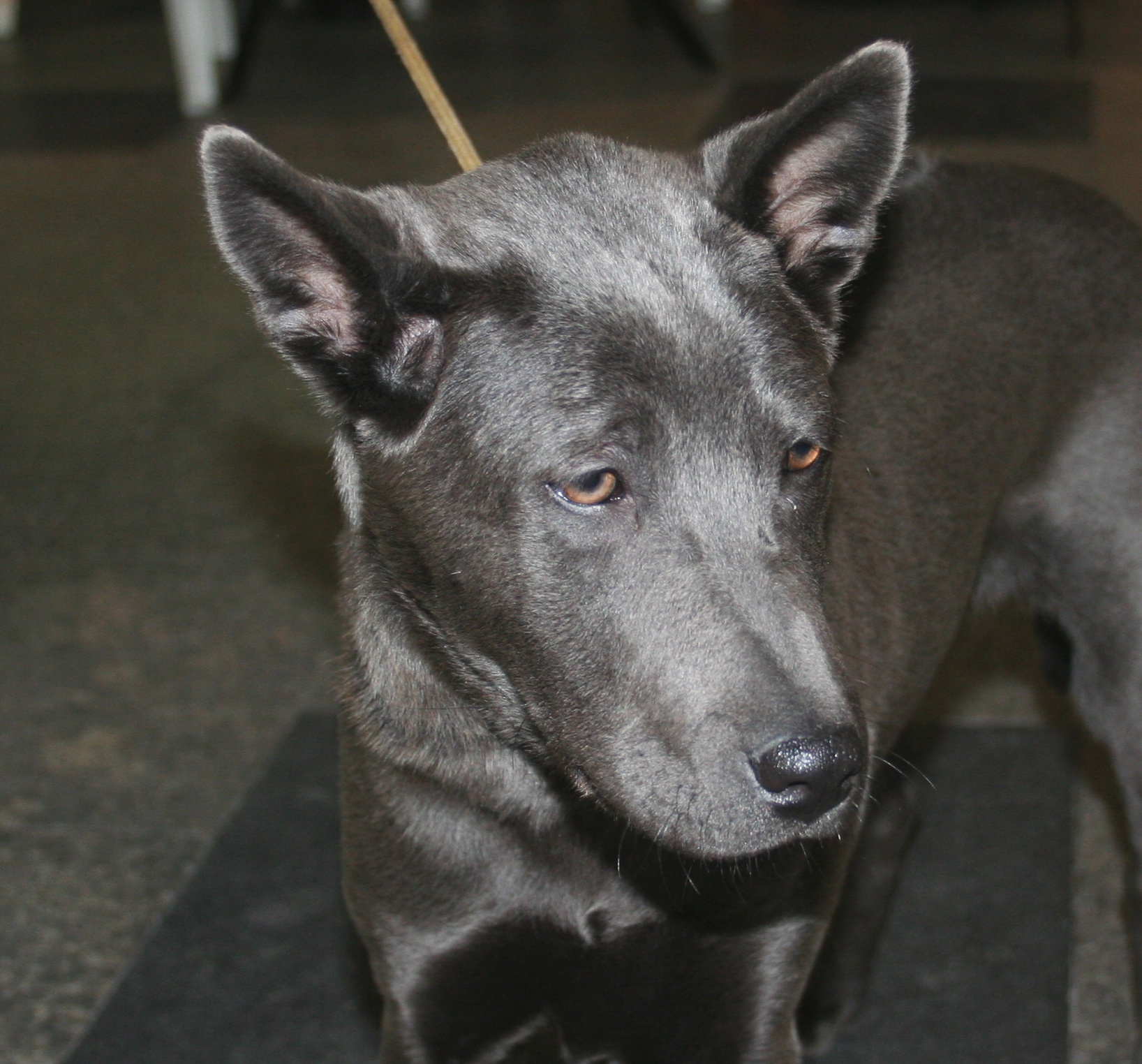
Brushing your Thai Ridgeback's teeth regularly is vital to prevent dental issues. Use a dog toothpaste and a dog toothbrush or finger brush to keep their teeth clean and healthy.
If the claws don't wear off naturally, they need to be trimmed regularly to prevent overgrowth. This is a simple task that can be done at home with the right tools.
The Thai Ridgeback's coat requires minimal care, but it's still essential to brush it once or twice a week to prevent matting and tangling.
You might enjoy: Dogo Argentino Teeth
Nutrition and Diet
A well-balanced diet is essential for maintaining good health. Eating a variety of colorful fruits and vegetables daily can provide essential vitamins and minerals.
Fiber-rich foods such as whole grains, legumes, and fruits can help lower cholesterol levels.
Drinking plenty of water throughout the day is crucial for maintaining proper hydration. Aim for at least eight glasses a day.
Appearance and Grooming
The Thai Ridgeback's appearance is quite striking, with a muscular and streamlined body that makes them extremely agile. Their short, smooth coat is easy to care for and sheds minimally, occurring once or twice yearly.

The coat comes in four solid colors: blue, black, red, and fawn, with a black mask being acceptable on reds. However, brindle and white are not acceptable colors.
One of the breed's distinguishing features is the ridge on their back, formed by hair growing in the opposite direction, which extends from behind the withers to the hips. Eight distinctive ridge patterns have been identified, including needle, feather, arrow, lute, violin, bowling pin, leaf, and saddleback.
- A red Thai Ridgeback
- A black Thai Ridgeback
- A blue Thai Ridgeback
- A fawn Thai Ridgeback
The Thai Ridgeback's grooming needs are relatively low-maintenance, requiring only a weekly brushing with a rubber curry brush to keep their coat gleaming. They shed year-round, but not heavily, and need a bath only when they're dirty, maybe once or twice a year.
Physical Characteristics
The Thai Ridgeback is a muscular, medium-sized dog with a distinctive appearance. Its wedge-shaped head and triangular-shaped prick ears make it a striking breed.
The Thai Ridgeback has a very short, smooth coat that sheds minimally, occurring once or twice yearly. This makes it a great choice for people with allergies.
A unique feature of the Thai Ridgeback is the ridge on its back, formed by hair growing in the opposite direction. This ridge can take on eight different patterns, including needle, feather, and arrow.
The Thai Ridgeback's coat comes in four solid colors: blue, black, red, and fawn. A black mask is acceptable on reds, but brindle and white are not acceptable colors.
Here are the acceptable coat colors for the Thai Ridgeback:
- Blue
- Black
- Red
- Fawn
The Thai Ridgeback's size varies between males and females, with males reaching a shoulder height of 22-24 inches and females reaching 20-22 inches. The weight also varies, with females averaging 35-55 pounds and males averaging 51-74 pounds.
The Thai Ridgeback's tail is carried upward, known as a sickle or sword tail. Its forehead wrinkles with enormous expression, giving it a distinctive look.
The Thai Ridgeback's ears are set low and point slightly outward, standing up progressively during the puppy growth period. They are not cropped, and the breed has a "scissor jaw" where upper and lower teeth interlock when the jaw bones clamp down.
Grooming Needs
The Thai Ridgeback's grooming needs are relatively low-maintenance. They have a short coat that sheds year-round, but not heavily.
To keep their coat looking its best, a weekly brushing is all it takes. Use a rubber curry brush to gently remove loose hair and keep their coat gleaming.
You should bathe your Thai Ridgeback only when it's dirty, which is usually just once or twice a year. Introduce your puppy to grooming from an early age so it learns to accept it with little fuss.
Here are some tips to keep in mind:
- Weekly brushing with a rubber curry brush is all it takes to keep their coat looking its best.
- Bathing is only necessary when your Thai Ridgeback gets dirty, usually once or twice a year.
Crates and Beds
When it comes to creating a comfortable and inviting space for your rabbit, a well-designed crate or bed is essential.
A crate can help keep your rabbit safe and secure, especially at night or when you're not home to supervise.
Rabbit crates should be at least 2x3x4 feet in size to give your rabbit enough room to stand up, turn around, and stretch out comfortably.
On a similar theme: When to Mate Female Dog
A good bed for your rabbit should be made of a comfortable material, such as fleece or a soft blanket, and should be easy to clean.
Rabbits often prefer to sleep in a quiet, dark place, so consider placing their bed in a cozy corner or under a covered area.
Pictures and Videos
A well-groomed person often takes pride in their appearance, which can be reflected in the quality of their photos and videos.
Good lighting is essential for taking flattering pictures, and it's best to avoid harsh direct sunlight, which can cause unflattering shadows.
Soft, natural light is usually the most flattering, so consider taking photos near a window or outside during the golden hour.
The right camera angle can also make a big difference, and it's often more flattering to take photos from a slight angle rather than straight on.
A good photographer knows how to use composition to create visually appealing images, and it's worth experimenting with different angles and poses to find what works best for you.
Broaden your view: Standard Schnauzer Photos
In videos, it's essential to consider the background and ensure it's not distracting or cluttered, which can take away from the main subject.
A simple, neutral-colored background is often the most effective, and it's worth investing in a good quality backdrop or using a plain colored wall.
By paying attention to these details, you can create high-quality pictures and videos that showcase your best self.
Related reading: Shiba Inu Background
Frequently Asked Questions
How rare is a Thai Ridgeback?
Thai Ridgebacks are a rare breed, with only around 300 registered in the USA. Their scarcity makes them a unique and potentially valuable addition to the right owner.
Is a Thai Ridgeback a good family dog?
Yes, Thai Ridgebacks can make great family dogs due to their loving and devoted nature. They're intelligent and energetic, but relatively low-maintenance.
Is a Thai Ridgeback hypoallergenic?
Thai Ridgebacks are not considered hypoallergenic, but their single coat may reduce allergy triggers
Featured Images: pexels.com
